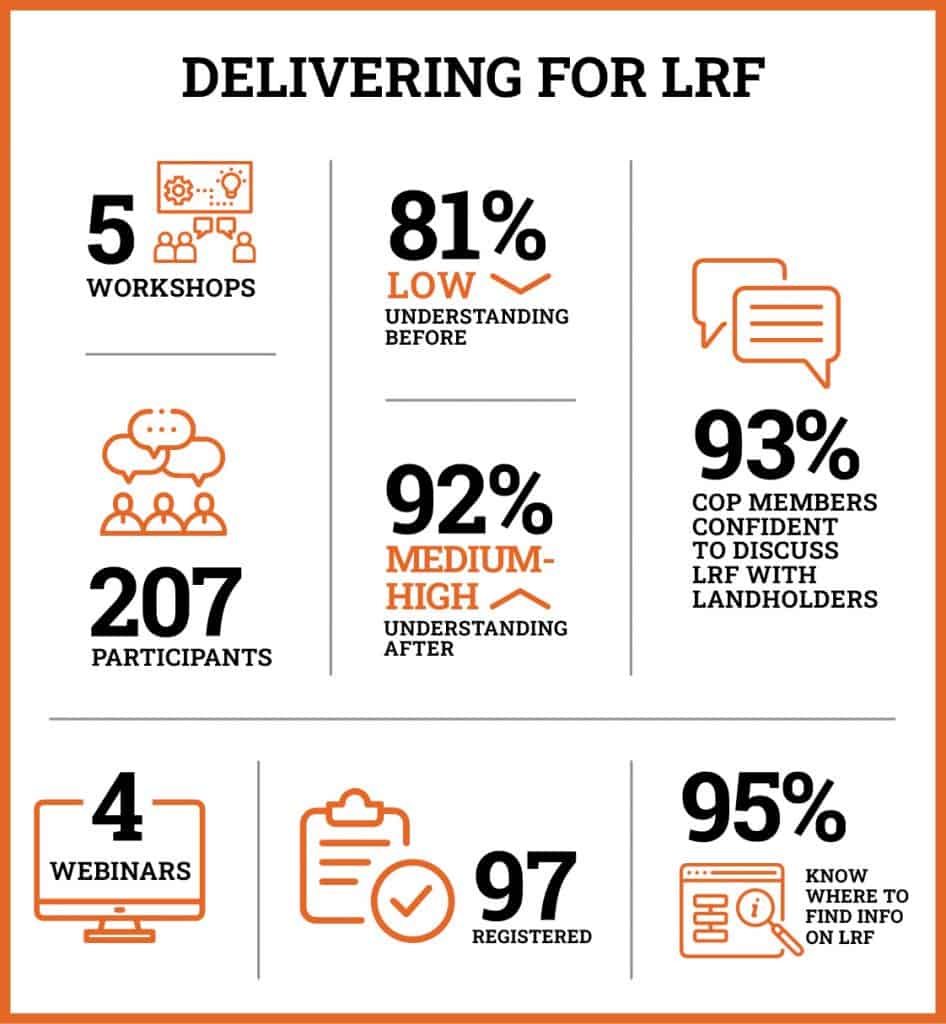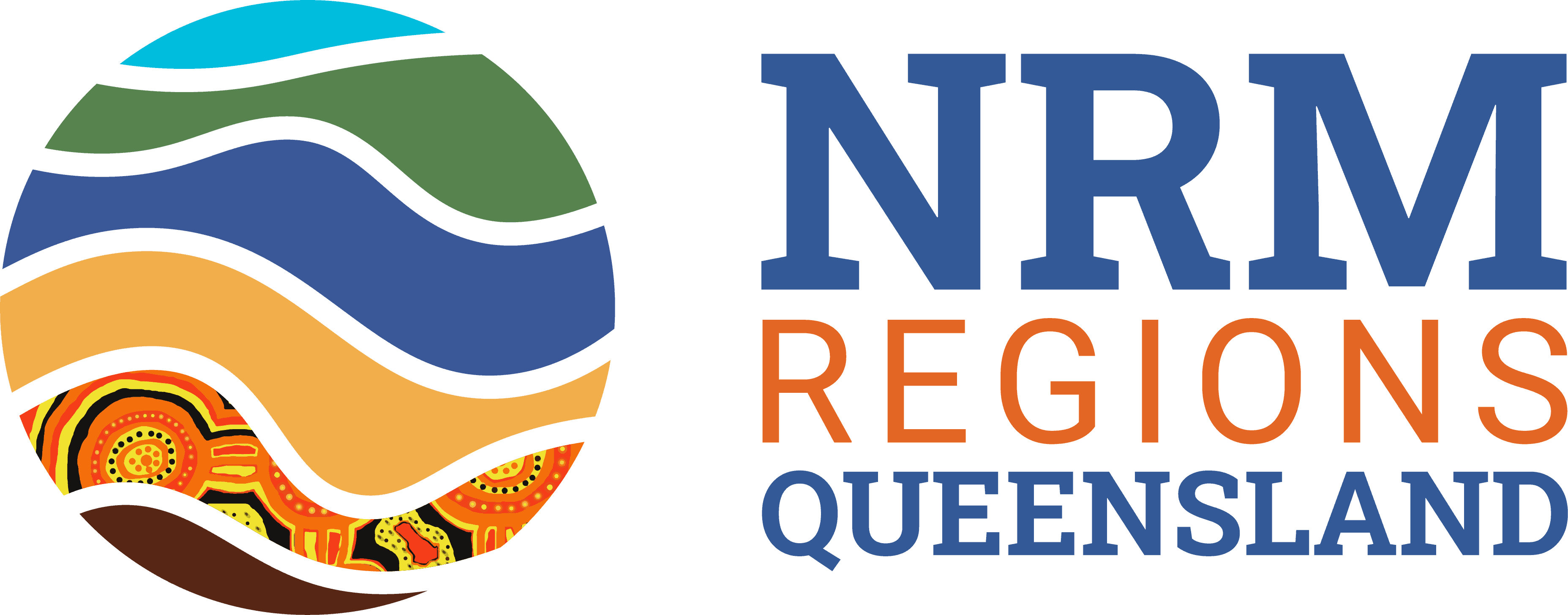The ongoing impact of the COVID-19 pandemic has impacted Queensland’s agricultural sector through loss of markets, the rising cost of inputs, on-farm and regional labour shortages, and interruptions to distribution networks.
This has catalysed landholder and regional NRM organisation’s interest in the ‘green blue economy’, spotlighting the potential to support the transition of regional economies through stimulating new investment and creating jobs in carbon farming and ecosystems services. This is the focus of the Queensland Government’s Land Restoration Fund.
We know that a key obstacle to landholder participation in the Land Restoration Fund, is a lack of understanding of the contractual requirements for participation in the carbon farming market.
Supporting knowledge brokers and land managers: collaboration in action
NRMRQ and the Queensland Farmers Federation (QFF), with the support of Queensland’s Departnent of Environment and Science are working together to support knowledge brokers and land managers to better understand the Land Restoration Fund.
By working together, we have jointly organised and facilitated five workshops focussed on expanding carbon farming in the state by supporting land-sector projects that deliver co-benefits as well as empowering farmers and land managers to participate. The workshops were held in mostly hybrid virtual/in-person formats in August and September 2021 and attracted 207 people.

Before these workshops, 81% of surveyed participants rated their knowledge of LRF as low. After the workshops, 92% of participants rated their knowledge of LRF as medium or high. 95% of participants stated that as a result of the workshops they now know where to go to access more information about the program.
In addition to these workshops, four webinars were delivered. Ninety-seven (97) people registered to participate live or view recordings. These participants included representatives from cotton and sugar industries, QRIDA, carbon project developers and environmental consultants ranging from micro-businesses through to medium-sized enterprises such as RCS. The webinars were focused on upskilling knowledge brokers from regional NRM organisations and industry bodies.
Adam Knapp, Policy Director, Environment & NRM, Queensland Farmers’ Federation said the workshops “enabled many regional landholders to learn about the opportunities of carbon farming, and importantly, to discuss and share their questions.”
Following these workshops, NRMRQ also commissioned the report Supporting Knowledge Brokers of the Land Restoration Fund. The report summarised findings from interviews with farmers that asked questions about barriers to participation in the carbon market as well as who their trusted advisors and information sources are. This information helps staff at QFF as well as regional NRM organisations better meet the needs of farmers expressing interest in the program.
Carbon Farming Community of Practice (CoP) – building knowledge, building capacity
In 2021-2022 the joint NRMRQ & QFF Carbon Farming CoP met five times with an average participation of 15 people. Through these forums, staff have engaged with research, industry leaders and carbon service providers as well as the Clean Energy Regulator, DES scientists and LRF administrators.
Topics presented have included blue carbon, barriers to landholders entering the carbon market, rangelands experience of carbon farming in Western Australia and LRF funding rounds and requirements, amongst others.
Carbon Farming Resource Handbook developed
Louise Gavin, Remarkable NRM was also contracted to provide support to the Carbon Farming CoP. Louise compiled a practical handbook providing a collection of information sources about carbon farming for landholders at entry level.
The Carbon Farming Resource Handbook collates resources available for landholders, regional NRM staff and agricultural industry staff supporting people to enter the Carbon Market and participate in a meaningful way with positive NRM outcomes.
This handbook explains the need for carbon farming and the ways land managers can be involved. Download the Carbon Farming Resource Handbook here.
